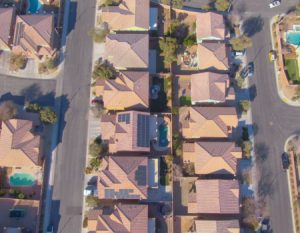As a landlord, it is essential to ensure that your property is adequately protected against any unforeseen circumstances. There are very few bad days worse than losing every penny of your property investment due to a fire or flood. With the many different types of insurance policies available, it can be confusing to determine which policy is best suited for your needs. Today’s blog post aims to provide a detailed comparison between landlord insurance and homeowners insurance, with a focus on Las Vegas property market.
What is Landlord Insurance?
Landlord insurance is a specific type of policy designed to provide protection for landlords who rent out their properties. It includes coverage for the landlord’s property, liability, and loss of rental income, making it an all-inclusive insurance policy. The primary purpose of landlord insurance is to protect landlords that carry the insurance from financial losses that can occur due to any accidents, natural disasters, or other unforeseen circumstances.
What is Homeowners Insurance?
Homeowners insurance is a comprehensive insurance policy that provides protection for homeowners who reside in their homes. This type of insurance covers the homeowner’s property, liability, and personal belongings, making it an all-inclusive insurance policy. The main objective of homeowners insurance is to safeguard homeowners from financial losses that may arise due to accidents, natural disasters, or other unexpected events that may pose a risk to their property.
Key Differences between Landlord Insurance and Homeowners Insurance
- Coverage
When it comes to insurance for property owners, it’s important to understand the differences between landlord insurance and homeowners insurance. While both policies protect against property damage and liability, landlord insurance also includes coverage for loss of rental income, which is not offered with homeowners insurance. Homeowners insurance, on the other hand, focuses solely on protecting the homeowner’s property, liability, and personal belongings.
- Liability Coverage
Another significant difference between landlord insurance and homeowners insurance is the liability coverage. Landlord insurance provides higher liability coverage than homeowners insurance. This is because landlords are exposed to a higher risk of liability claims due to their tenants residing on their property.
- Loss of Rental Income
Landlord insurance provides coverage for loss of rental income, which is not covered by homeowners insurance. This coverage ensures that landlords continue to receive rental income even when their property is uninhabitable due to unforeseen circumstances such as a natural disaster.
- Cost
Landlord insurance is generally more expensive than homeowners insurance. This is because landlord insurance provides additional coverage for loss of rental income and higher liability coverage.
- Tenant Screening
Most landlord insurance policies require landlords to conduct tenant screening before renting out their property. Homeowners insurance policies do not require this.
Which Insurance Policy is Right for Las Vegas Landlords?
Las Vegas landlords should consider several factors before choosing an insurance policy. The factors to consider include:
- Type of Property
- The type of property being rented out is a crucial factor to consider when choosing an insurance policy. For example, if the property is a single-family home, homeowners insurance may be sufficient. However, if the property is a multi-unit apartment complex, landlord insurance may be more appropriate and useful in a time of need.
- Tenant Screening
- Las Vegas landlords should conduct tenant screening before renting out their property. Most landlord insurance policies require this, and failing to do so could result in a denied claim.
- Liability Protection
- Las Vegas landlords should consider the liability protection offered by each insurance policy. Landlord insurance provides higher liability coverage than homeowners insurance, which is important for landlords who are exposed to a higher risk of liability claims.
- Cost
Las Vegas landlords should compare the cost of each insurance policy and choose one that provides adequate coverage at an affordable price. If course, the better policies that offer greater coverage will cost more than the basic coverages.
Conclusion
Both landlord insurance and homeowners insurance provide essential protection for property owners. Las Vegas landlords should carefully consider their options before choosing an insurance policy. Landlord insurance provides additional coverage for loss of rental income and higher liability coverage, making it more suitable for some landlords. However, homeowners insurance may be sufficient for landlords who are renting out a single-family home. Ultimately, the decision will depend on the type of property being rented out and the level of protection required.




